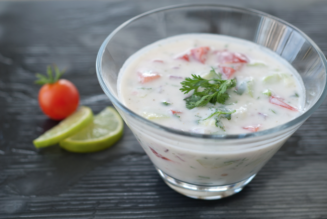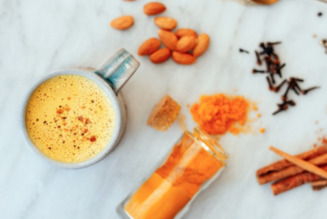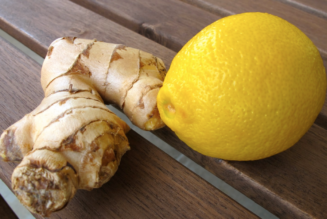“All disease begins in the gut.”
– Hippocrates
Hippocrates – who is the father of modern medicine has stated that – “all disease begins in the gut”. However, even more impressive is the science of Ayurveda. The literal meaning of Ayurveda is “The Science Of Life” and dates back thousands of years. Ayurveda is an ancient science which takes a positive and preventative approach for maintaining health which is beautifully explained with the following quote …
“The aim of Ayurveda is to maintain the
health of the healthy and to cure diseases of the sick.”
– Charaka Sutrasthana 30:26
Gut Health – Gut Flora
The ancient wisdom of Ayurveda has stated long ago the health benefits of optimal digestion [“Agni” – The Digestive Fire]. Modern science is only recently begun to understand the full extent of the gut flora’s role in health and well-being. For example, the gut flora promotes optimal digestive function, provides a robust immune response, regulates metabolism and even compromises more than 75% of our immune system. It’s extraordinary that the teachings of Ayurveda have stated much of these important functions many thousands of years ago.
Factors which can disrupt normal gut flora:
– antibiotics and other medications
– diets high in refined carbohydrates, sugar and processed foods
– diets low in fermentable fibers
– chronic stress
– chronic infections
VIDEO – “How To Treat IBS Naturally.” – Dr. Josh Axe
Irritable Bowel Syndrome
The signs and symptoms of irritable bowel syndrome can vary widely from person to person. However, the most common symptoms are abdominal pain and cramping, bloating, and alternating bouts of constipation and diarrhea. The science of Ayurveda has described this condition as “pakvashaya kupita dosha” mainly involving inflammation of the intestinal mucosal lining and abnormal gut motility.
These ancient teachings have described that nearly all movement of the body is governed by an energetic concept named “vata dosha”. A modern perspective resembling these same principles of ayurveda are that of ‘Functional GI & Motility Disorders’. The wisdom of Ayurveda has long understood the relationship of the body and mind and has always placed great emphasis upon this in order to find the root cause of all diseases. Even further Ayurveda gives focus on diet, lifestyle, herbal remedies, yoga & meditation to help manage disease and to help bring about overall balance to the body and mind.
“According to Ayurveda, irritable bowel syndrome is due to
vata pushing pitta into the colon.”
– Dr. Vasant Lad; Ayurvedic Physician
In this context we can think of vata as the driving force of gut motility. Likewise, we can state that the derangement of vata not only leads to impaired gut motility but more specifically leads to unsynchronized and uncoordinated functioning of the specialized microvilli resulting in symptoms often reported in IBS patients. The following research article states,
“This review presents evidence for the presence of an anatomical defect in IBS patients, namely in the gastrointestinal endocrine cells. These cells have specialized microvilli that project into the lumen and function as sensors for the luminal content and respond to luminal stimuli by releasing hormones into the lamina propria, which starts a chain reaction that progresses throughout the entire NES. The changes in the gastrointestinal endocrine cells observed in IBS patients are highly consistent with the other abnormalities reported in IBS patients, such as visceral hypersensitivity, dysmotility, and abnormal secretion.”
An Ayurvedic Perspective
The basic approach to improving IBS from an Ayurvedic perspective is centered around pacifying and reducing this quality of vata. Vata is often characterized as being dry, rough, cold and mobile. Therefore a simple approach in helping to pacify vata is simply to eat fewer raw vegetables and eating meals which are grounding and generally warm, soft, and easy to digest.
“Yep, that’s right. Fewer vegetables. Vegetables (as well as some fruits) are often high in insoluble fiber. While soluble fiber can be soothing for the gut, consuming large amounts of insoluble fiber when your gut is inflamed is a little bit like rubbing a wire brush against an open wound. Ouch.”
– Chris Kresser; “Gut Health”
Therefore, you may want to consider vegetables that are high in soluble fiber, but lower in insoluble fiber (and thus tend to be safer for those with gut issues). These include:
- Carrots
- Winter squash
- Summer squash (especially peeled)
- Starchy tubers (yams, sweet potatoes, potatoes)
- Turnips
- Rutabagas
- Parsnips
- Beets
- Plantains
Simple Considerations For IBS
- Consider taking 1 teaspoon of sat isabgol [psyllium husk] with 1/2 cup of fresh yogurt 1 hour after dinner.
- Another consideration is to boil 1 teaspoon of flaxseed in a cupful of water to make a tea, and drink at bedtime.
ENEMA:
According to the teachings of Ayurveda, the seat of vata dosha is in the colon and the therapy of choice is a rectal enema [i.e. “basti”]. This procedure should only be performed under the guidance and supervision of a qualified ayurvedic professional after having discussed the risk/benefits/alternatives with your primary care physician. Ayurveda recommends introducing 1/2 to 1 cup of sesame oil into the rectum and retain the oil for approximately 5 minutes. This is thought to help pacify vata and helps to nourish and support optimal gastrointestinal function.
Want More?
Click Here – To Learn About “The 10 Golden Rules Of Food Intake”
Disclaimer:
This is strictly for educational purpose only and not to be considered medical advice. Always first discuss any inquiry with your primary care physician before considering any new health regimen.
Resources:
‘Is Irritable Bowel Syndrome An Organic Disorder?’; ncbi.nih.gov
‘What Are FGIDs’, UNC Center for Functional GI & Motility Disorders.
‘Gut Health’, Chris Kresser, L.Ac – Holistic Health Practitioner
‘The Complete Book Of Ayurvedic Home Remedies’; Dr. Vasant Lad. Three Rivers Press.



![Female Health: Amenorrhea [cessation of menses] – An Ayurvedic Perspective](https://healthyayurveda.com/wp-content/uploads/2015/07/1.-Amenorhea--327x219.png)




